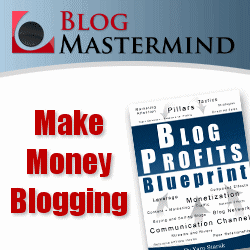For many, Vietnam has long been touted as the next China in the making... With a USD$70 billion economy, 85 million diligent working-class population and 8.5% GDP growth, it's not unrealistic to make such predictions. Many foreign companies have flocked into Vietnam, setting up mainly low-cost manufacturing plants and ventured into the property market to serve the supposedly "hungry" market. However, being a relative new emerging market, risks are abundance. Nevertheless, it is difficult to ignore Vietnam as it has all the potential to be the next major source of growth, after China and India.
So, today, i would like to take this opportunity to share with you an article on Vietnam from an investment perspective.
Today Vietnam has an inflation problem, but it’s a great market to pick up value, says a chief investment officer, adding that price/earnings ratios for many firms have fallen to below 10 times — cheaper than the Thai and Philippines markets.
The hype about Vietnam’s WTO entry and its “mini-China” potential has been washed away by double-digit inflation but, ironically, now could be the time for funds to pour money into the country’s ravaged stock market.
Investment managers who talked up Vietnam in the past two years say that amid the slump in shares, bargains are emerging in the US$70 billion economy, which is still expected to grow as much as 7.5 per cent this year despite a global slowdown.
Government estimates show foreign direct investment disbursements would jump 25 per cent to US$10 billion in 2008 from last year, when it joined the World Trade Organisation.
After two years of what some have described as gambling in the fledgling stock markets of the Communist Party-run Southeast Asian country, investors are urged to take a long-term view.
However, Lalonde said companies had not borrowed heavily and still needed capital to take advantage of an emerging middle class and a fast growing economy that has drawn manufacturers such as Samsung Electronics Co Ltd, Intel Corp, Compal and Foxconn.
Some companies, including listing candidates who have already had initial public offerings pushed back, would look to foreign investors to raise equity through private placements.
“Yes, they’ve got an inflation problem, but it’s a great market to pick up value,” said Lalonde.
Investment strategist Spencer White, who helped stoke Vietnam fever in 2006 with a report calling it a “10-year buy" while he was at Merrill Lynch, said market bubbles were popping.
“One bubble has burst — equities. The other bubble currently bursting is the property market,” said White, who is an adviser to Thien Viet Securities in Ho Chi Minh City.
Property prices have fallen about 10-15 per cent this year, after quadrupling in cities last year.
“That means opportunity,” White said at a sparsely attended Hong Kong conference session on Vietnam. “I’ve seen more private equity teams in the last six weeks than in the previous six months.”
While the global credit crunch has done little to encourage investment in risky emerging markets, Vietnam’s headaches are rooted in soaring food, fuel and house prices, reflected in a 19.4 per cent jump in the consumer price index in March.
To battle inflation, authorities have sought to restrict bank lending, which grew 50 per cent last year. The government also has raised bank reserve requirements and interest rates, and imposed stricter rules on lending.
The Ho Chi Minh Stock Exchange is the worst performer in Asia this year, losing 43 per cent, after being one of the top performers a year ago. The share slump prompted government intervention in March to buy back shares and restrict the intra-day trading band to 1 per cent.
The market rose sharply on Monday after regulators doubled the intra-day share trading band to 2 per cent to increase liquidity.
“The panic that was around suggested that the Vietnam story was over, but that’s clearly not the case,” said Kevin Snowball of PXP Asset Management in Ho Chi Minh City. “The government intervention achieved its aim to slow down the fall and the panic and now people can stop and think long term.”
Sacombank Securities, whose research tries to educate with a “word of the day” explaining terms such as net asset value, says catfish exporter Navico is trading at 8.8 times earnings, while Petrovietnam Fertilizer and Chemicals Co, information technology firm FPT and Industrial group Hoa Phat are at around 13 times.
Still, Vietnam remains an opaque market, lacking research to aid investors. The stock market is still illiquid and the government interventions have highlighted the risk that new rules can be sprung on investors.
“It’s possible to make a quick killing but you could be the one to get killed!” investment manager Lalonde said.
For the complete article, please visit Reuters.
In Malaysia, one can invest in Vietnam via the Vietnam Unit Trust fund offered by Hong Leong Bank. However, as this is a wholesale fund, only high net worth individuals (those with net worth more than RM3 million or roughly USD$960k) are eligible!







No comments:
Post a Comment